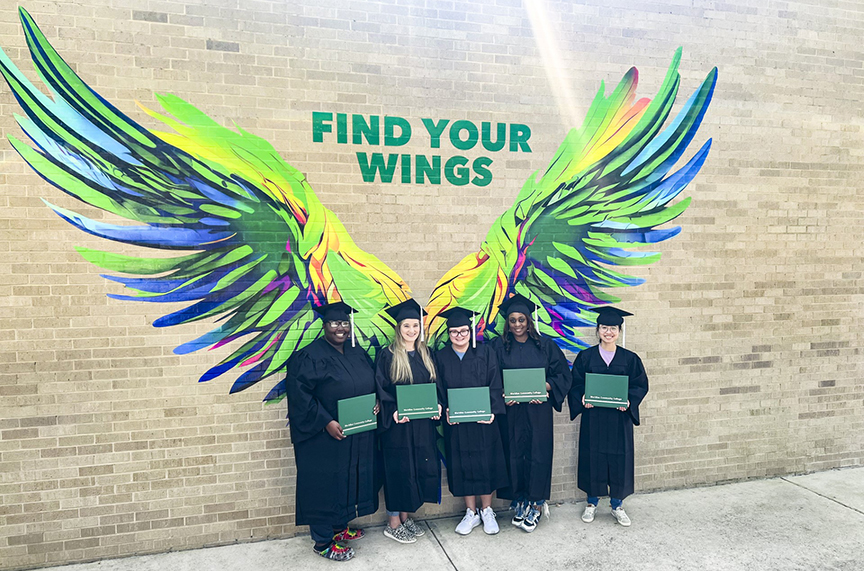MCC Medical Laboratory Technology students post 100 percent pass rate
 MCC Medical Laboratory Technology Program graduates D'Undra Lotonia Jackson, left, Haley Alexis Groves, Ally Houston, Kesia Nicole Gray, and Hoai T. Pham pose for a photo opportunity on campus.
MCC Medical Laboratory Technology Program graduates D'Undra Lotonia Jackson, left, Haley Alexis Groves, Ally Houston, Kesia Nicole Gray, and Hoai T. Pham pose for a photo opportunity on campus.
Meridian Community College's Medical Laboratory Technology (MLT) Program Class of 2023 graduates successfully passed their national licensure exam, the American Society for Clinical Pathology (ASCP) examination, on their first attempt for a 100 percent pass rate.
This makes the fifth year that this MCC career and technical education program has earned this honor. This year’s class includes Kesia Nicole Gray, Haley Alexis Groves, Ally Houston, D’Undra Lotonia Jackson, and Hoai T. Pham.
"The milestone of passing national boards is an accomplishment each student in the MLT 2023 graduating class sought from the first day of class in August 2021. None of them knew they would accomplish this goal before graduation, but this is exactly what they were able to achieve. All 2023 graduates of the MLT program passed national boards giving the MCC MLT program a 100 percent pass rate on national boards of 100 percent for the past five years,” said Sheila Johnson, program coordinator and instructor of the MCC MLT Program. Krystal Holifield is also an MLT Program instructor.
Upon completing the program, MLT students earn an associate of applied science (AAS) degree.
Johnson and Holifield are proud of the students and said they are eager to witness the work they are going to perform as certified medical laboratory technologists. “Each of these students worked diligently for two years and they never gave up on their dream of becoming an MLT. These students are great examples of what can be achieved when individuals are given a chance to find their wings at MCC,” Johnson added.
Graduates of the MLT program can work in any area of a clinical laboratory, or they may use their degrees to further their education as medical laboratory scientists (MLS). Graduates may work in pathology laboratories, hospital laboratories, clinic laboratories, emergency department laboratories, blood service laboratories, reference laboratories, or veterinarian laboratories. They may also serve as field service representatives (individuals who work on lab instrumentation), quality control specialists, or point-of-care specialists.
Opportunities to become a laboratory supervisor or laboratory manager are also potential career advances for individuals with an MLT degree.
Visit meridiancc.edu/mlt for more information.

